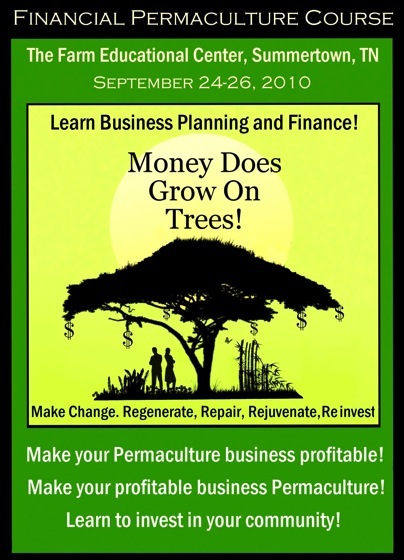








Home | About Us | Contact Us | Store

2008, Living Mandala
creative services by: 360 Degrees
Including
ENTREPRENEUR TRAINING
BUSINESS ECOLOGY
SMALL FARM START-UP
FINANCIAL PERMACULTURE
Hosted By
The Center for Holistic Ecology
Financial Permaculture Institute
Gaia Southeast
Instructors & Facilitators
Eric Toensmeier
Jennifer English
Gregory Landua
& Special Guests
Course Inspiration
What Does a Sustainable Working Economic Model for a Modern Rural American Community look like? Communities throughout America are looking for the solutions to increasing energy costs, shaky financial markets, changing ecosystems, and job losses in a globalized economy. How do we respond to a world which seems to present us with changes and challenges almost daily?
Course Description
This innovative training for teachers, designers and community organizers hosted will review the mechanics of design, and tools for strategic organization, business planning, documentation, collaboration, action learning and principles of Permaculture applied to personal, ecological, social and financial systems as they meet in the nexus of right livlihood. Core instructor Eric Toensmeier will lead participants in three days of applied permaculture design to co-create thriving, humane, economies that regenerate whole ecosystems (profits for a prosperous planet!). Take this amazing workshop as a follow up to the Teaching Permaculture Creativly Course, or as a stand alone.

What kind of people should come?
This Convergence is designed to be an inter-generational, trans-cultural, and interfaith opportunity to learn how to leverage local resources, diversity and talent to create business opportunities that give back to the local community, bio-region, country, and the world. Attendees will include lawyers and bankers, small business owners, philanthropists, community organizers, investors, financial planers, accountants, construction workers, permaculture designers, financial advisers, city council members, local officials and students of ecology, education and business, and more.
Are there any pre-requisites required to coming?
While a background and understanding of permaculture as well as business is not required, it is helpful.
What is the format and educational style?
The education style for this event will be content driven participatory design. We will be providing key content from experts in financial planing, investment, ethanol production and engineering, green construction & natural building, cooperative legal structures, and more. We will also be utilizing the knowledge and skills of participants using open space technology and design simulations.
Frequently Asked Questions & Logistics
For answers to additional frequently asked questions, logistics, travel and more detailed information Download the Logistics Packet.
What is Permaculture?
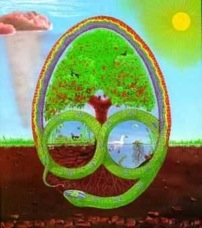
Tuition & Registratiion
Tuition for the course is $500 and includes course materials, food, and on-site lodging. A minimum $100 deposit is required to hold your space in the course, with the full payment due by September 1, 2010.
Site Details - The Farm

Located on The Farm at the eastern edge of Lewis County Tennessee, ETC is a training center in sustainable living. It holds courses and workshops, apprenticeships and special demonstrations in green lifestyles. The facility is located in a permaculture setting with protected woods and meadows, an eco-hostel, organic garden, swales, ponds and learning center. It hosts courses in permaculture, organic certifications, herbology, installation of solar electric systems, solar waterheating, mushroom cultivation, cob, earthbag and strawbale construction biofuels and a host of courses designed by Gaia University. The ETC has trained students from over 50 countries and is pleased to be working locally with the Hohenwald Financial Permaculture project.
Financial Permaculture Summit 2008
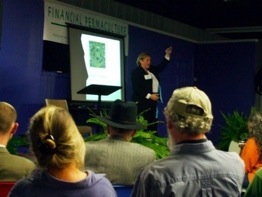
Watch the video from the 2008 Financial Permaculture Summit
Additional Financial Permaculture Videos
Find More Videos from previous Financial Permaculture Courses on the Living Mandala Social Network.
Financial Permaculture Resource Hub
Get updates from previous Financial Permaculture Courses, find and track the dynamic changes we are seeing in the global economy with updates, resources, blogs, and articles about Financial Permaculture at www.FinancialPermaculture.org.
Contact
Phone: 888-878-2434 x 2


Instructors & Facilitators
The Financial Permaculture Design & Facilitation Team consists of an interdisciplinary coalition of individuals from the business, non-profit and education sectors who have come together to create a forum to address the economic and environmental challenges of the day. Through grassroots organizing, participatory design, and democracy we are working with local communities to create holistic and regenerative economic solutions for local and international sustainability.
Eric Toensmeier
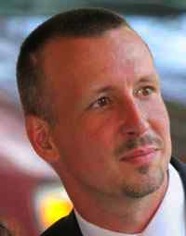
Jennifer English
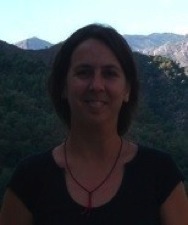
Gregory Landua
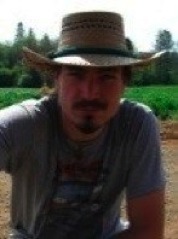
Affiliate Organizations & Sponsors
Become a sponsor of this course!
For details email: affiliates@livingmandala.com
Financial Permaculture Course
Thriving Economies from Healthy Ecosystems
September 24-26, 2010
The Farm Community, Summertown, Tennessee

